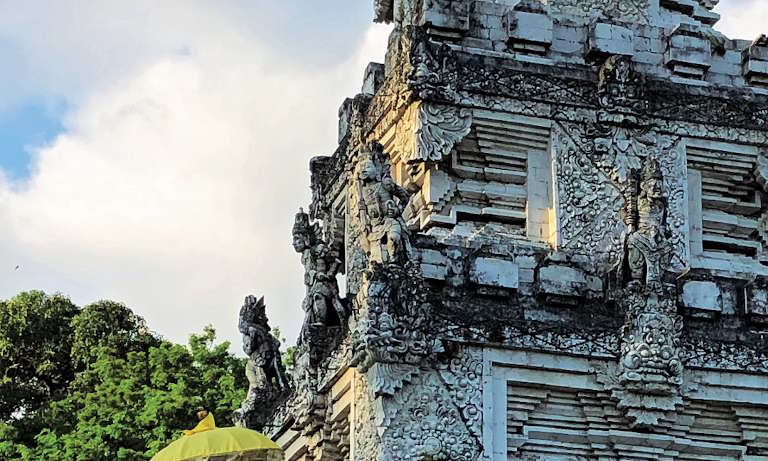Atlas is a Giant Turtle and Two Snakes
Greek mythology acknowledges Atlas as a titan condemned to bear the weight of the heavens – often portrayed as a celestial globe – on his shoulders. Balinese mythology, however, begs to differ. Atlas is said to be the one who knows the depths of the whole sea and keeps the tall pillars that hold the
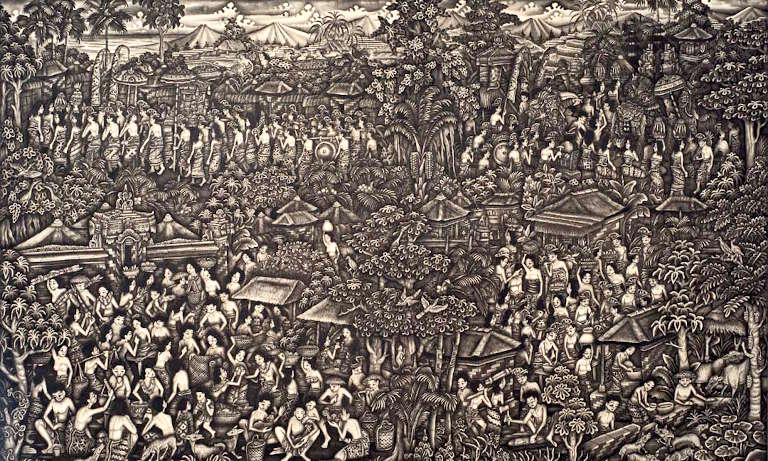
Traditional Daily Life
Below is another painting that attempts to portray a global view of traditional village life. This painting is characterised by its strong overall design. The image is divided into four quarters, bisected vertically by a darker series of trees running through the centre, and horizontally by two processions travelling in opposite directions. Everything seems to
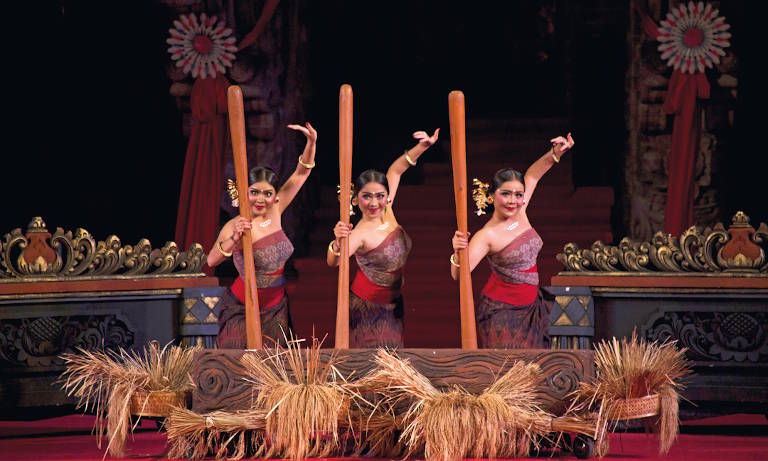
Byungbong: The Women’s Harvest Dance
Vast areas of paddy fields welcome travellers to Jembrana, Bali’s most western regency. The views are spectacular when passing through the border that separates Tabanan and Jembrana regencies, where the green farms expand out into a blue, ocean backdrop. When it’s time for harvest, the fields turn gold, shining under the Bali sun. Whilst most
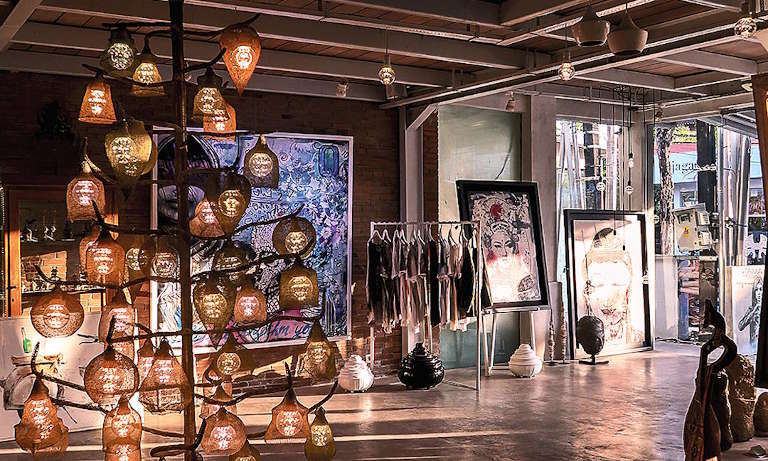
Nyaman Gallery : A New Breed of Art Gallery in Seminyak
If you take a stroll along the shopping precincts of Kuta, Seminyak and Ubud, you can quickly become overwhelmed by the presence of commercial art. Art shops line the streets selling all manner of western and locally inspired artworks. Visitors may ponder: “Where can I see the best of the local traditional or contemporary art?”
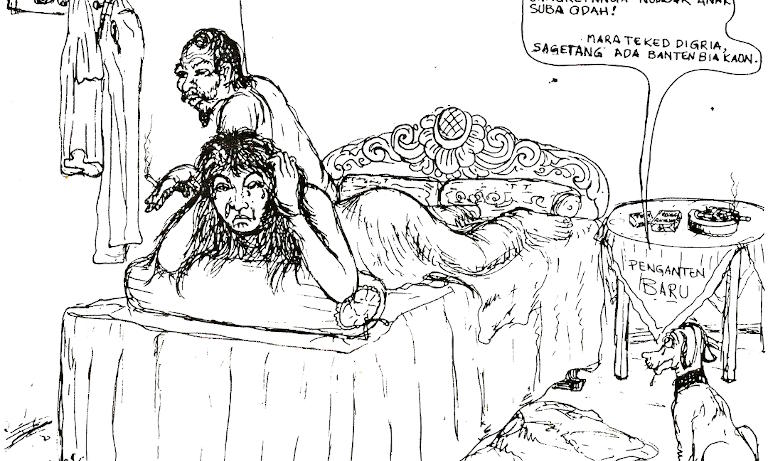
The Dayus: The Brahmin Women of Days Past
The girl woke up and lifted her well-balanced shoulders. A watchful look came into her beautiful, Bambi eyes as an elderly woman of 70 or so approached her. “Enough is enough,” said the latter. “You’d better accept your fate! Don’t forget that you are a Dayu and that the choice of your husband is not
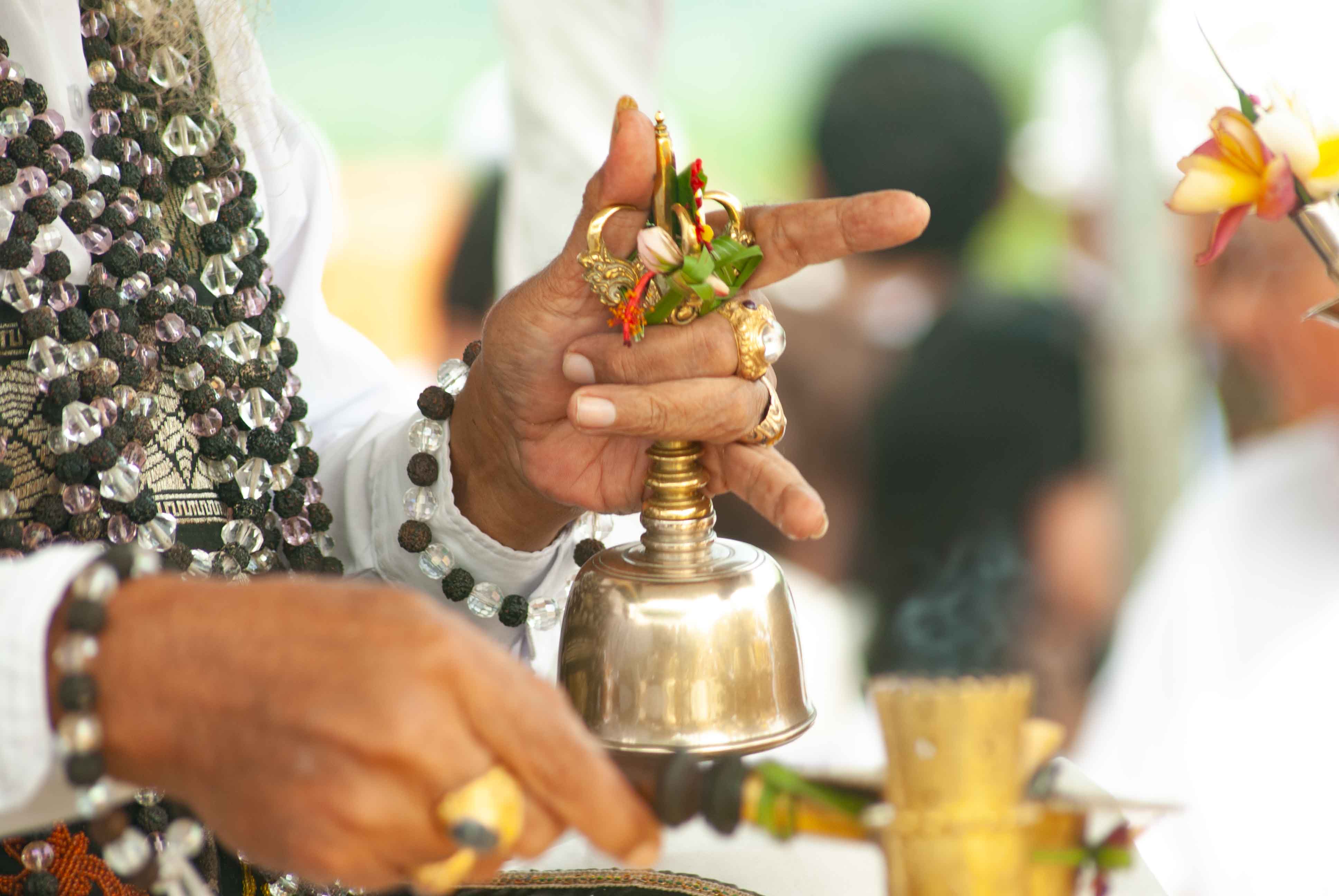
Melaspas : Bali’s House Blessing Ceremony
It seems there is a ceremony for everything in Bali! Another ceremony you’ll find on the Island of the Gods is a house blessing ceremony, known locally as Melaspas. This involves a priest, prayers and offerings that will cleanse every corner of the house and its compound. The Melaspas ceremony is mandatory before moving into
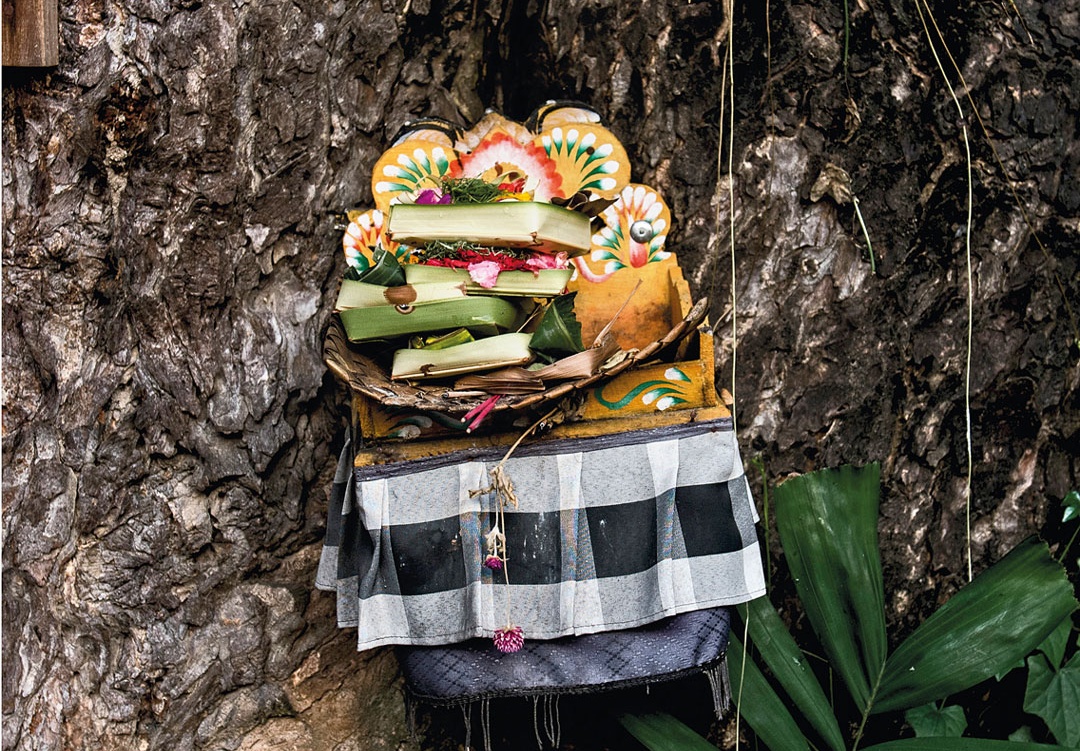
The House Spirits
The Balinese believe that every house has its own guardian spirits who live in a small shrine at the front gate called the Penunggun Karang. These are intended to repel negative auras or people that attempt to enter a home, be it the ‘seen’ or the ‘unseen’. If people with bad intentions enter a home,
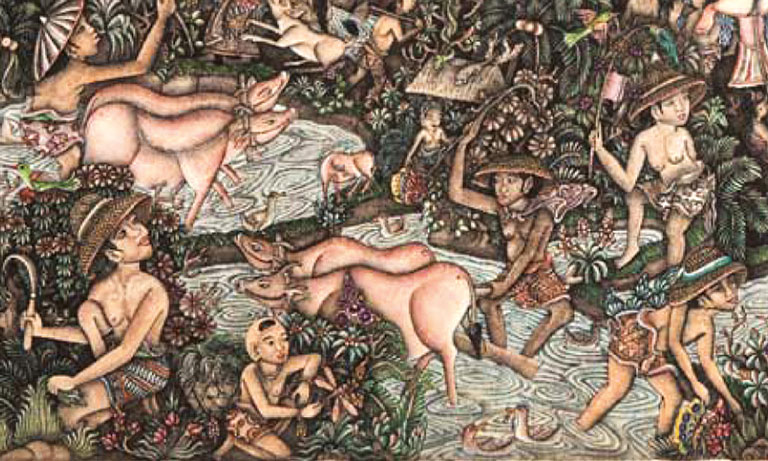
Traditional Daily Life in Bali’s Batuan Paintings
This painting by a woman artist, Ni Wayan Warti, has a stable composition and does not challenge the viewer with either complex iconography, or spatial ambiguity. This is a village at peace and, according to the artist, was done for her own satisfaction. The painting is called Galungan, after a major, island wide ceremony in
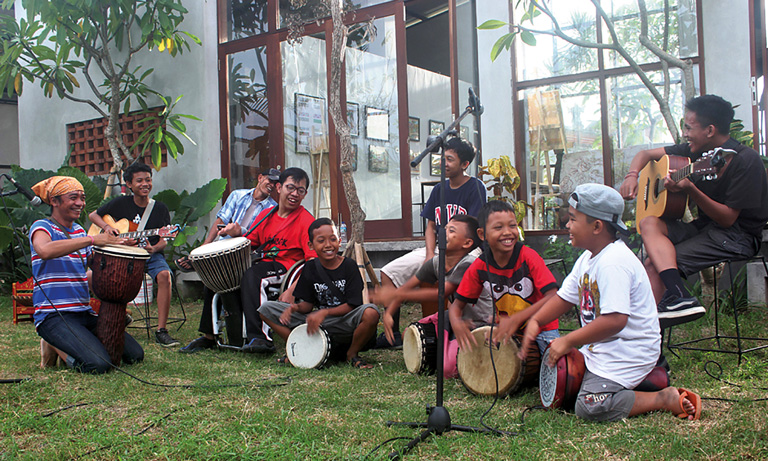
Kulidan Kitchen Space: Building Community Through Art, Education, Creativity, Activism & Food
One of the most satisfying phenomenon’s of Bali’s recent modern development has been the birth of an array of art and creative, multi-purpose spaces that serve as platforms for community co-working and engagement. Kulidan Kitchen Space, a new initiative in the rice fields of the Guwung village, Sukawati, fifteen minutes from Denpasar, is one such
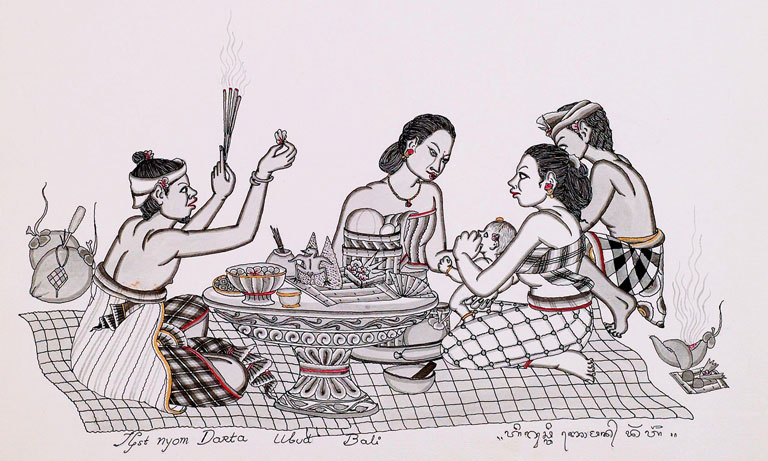
Is This The End of The Ancestors’ Cult In Bali
The ancestors’ cult, for some reason, is deemed irrational. Is it for this reason that established religions are doing their best to eradicate it? Indonesia is a case in point, regarding both Islam and Balinese Hinduism. In Indonesian Islam, the main point of contention between the two principal Moslem organisations, Mohammadiah and Nadhadul Ulama, is
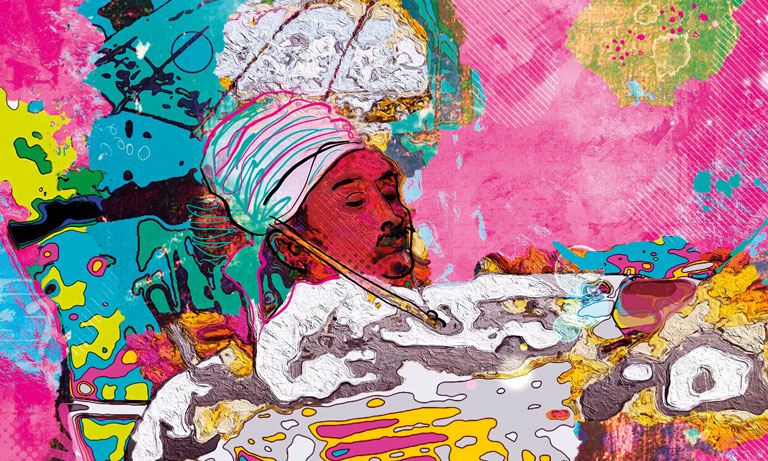
Pawang Hujan : Bali’s Mystic Rain Stoppers
With climate change taking effect around the planet, we can now expect to have downpours as early as September here in Bali, when the days are supposed to be sunny. So, in case you’re throwing an outdoor, cliff-edge party this month, you may have to consider involving a little bit of ‘magic’ to make sure
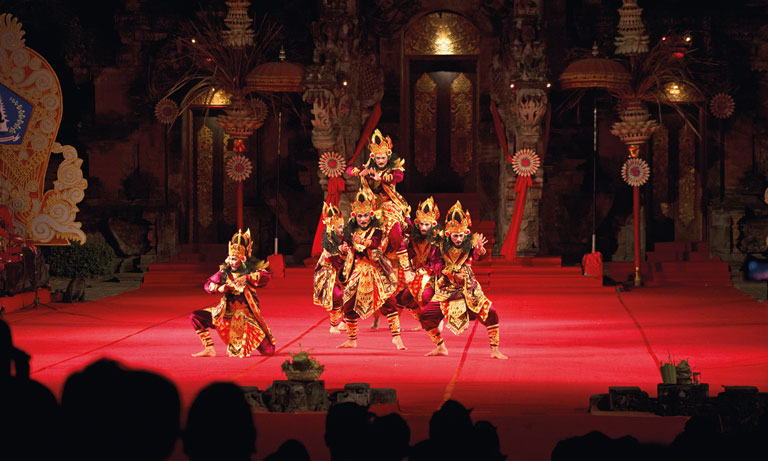
Manik Jiwa Dance
The dancers arrived at the stage just like a troop of warriors. Their feet pacing in perfect unison. They were dressed beautifully. Their costume is a modification of that found in the Baris soldier dance, a common traditional dance performed by male dancers. The costume shouts dominance with its bright red and gold, sparkling under
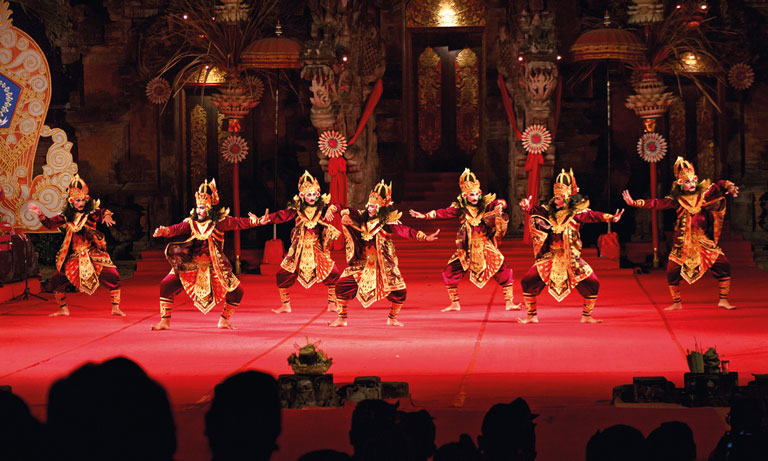
Gong Kebyar: Beautiful, Fast, Evolving
Kebyar means fast, the name Gong Kebyar is given to this genre of music because of its progressive rhythm and rapid tempo. It is one of several genres in the Balinese traditional music scene. Colin McPhee, in his book Music in Bali, wrote that according to his interview with A A Gde Gusti Jelantik, the

